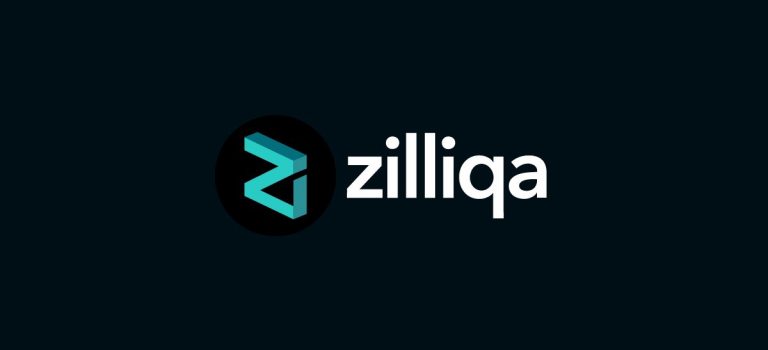Introduction
Digital transformation is a major priority for many organizations today. It involves adopting digital technologies, processes, and business models to create value and drive competitive advantage. DevOps plays a crucial role in enabling successful digital transformation through accelerated software delivery, improved collaboration, and a culture aligned with agility and innovation.
DevOps refers to the integration of development (Dev) and IT operations (Ops) teams and processes to enable the continuous delivery of software. By adopting DevOps principles and innovations, organizations can achieve faster time-to-market for new features, higher quality software, improved reliability and security, and better alignment with business objectives.
This article will examine how DevOps capabilities and culture are driving digital transformation in leading enterprises today. We will look at the key innovations in DevOps powering the agility and velocity needed to shape digital initiatives and stay competitive. The article will also highlight best practices, implementation challenges, and future trends.
The Role of DevOps in Digital Transformation
Overview of DevOps
DevOps emerged from the need for faster software releases and higher quality in an era of rapid technology change and digital disruption. It breaks down organizational silos between dev and ops teams by fostering collaboration, shared ownership, automation, and a culture of continuous improvement.
The core DevOps capabilities include:
- Continuous integration and deployment – Automating builds, tests, and releases to enable frequent, reliable releases
- Infrastructure as code – Managing infrastructure through code for consistency and efficiency
- Monitoring and observability – Insights into systems, metrics, and logs for troubleshooting issues faster
- Security and compliance – “DevSecOps” to embed security earlier in lifecycles
- Collaboration tools – Enabling communication and knowledge sharing across teams and roles
DevOps Culture and Principles
Beyond tools and processes, DevOps success requires cultural change centered on a shared mindset and values:
- Customer-focused – Aligning closely with business goals and user needs
- Collaborative – Breaking down organizational silos through shared ownership and decision making
- Transparent – Fostering open communication, feedback loops, and sharing risks early
- Failure-positive – Learning quickly from failures rather than punishing people
- Growth mindset – Encouraging experimentation, continuous learning and improvement
These principles enable the agility and innovation required for digital transformation.
How DevOps Helps in Digital Transformation
DevOps accelerates and enables digital transformation in the following key ways:
- Faster time-to-market – Releasing features and fixes in hours or days versus months
- Improved software quality – With comprehensive test automation and monitoring
- Higher reliability and uptime – Through infrastructure automation and resilience testing
- Better security – By integrating security earlier in development cycles
- Product experimentation – Testing and iterating on digital products and features quickly
- Data-driven decisions – Using metrics and observability to align with customer usage and priorities
- Lean organizational structure – With decentralized, cross-functional teams focused on value
- Culture of innovation – Empowering teams to rapidly experiment and learn from failures
Benefits of DevOps in Digital Transformation
Research shows organizations adopting DevOps principles and practices achieve significant benefits in their digital transformation efforts, including:
- 200x more frequent code deployments
- 2,555 faster lead time from commit to deploy
- 50% less time remediating security issues
- 60% fewer unplanned outages and service disruptions
- 50% higher customer satisfaction scores
- 38% faster time-to-market for new features
- 60% better IT staff retention and engagement
These outcomes directly translate to improved competitiveness, growth, and profitability.
DevOps Innovations in Modern Enterprises
Leading companies across industries are leveraging DevOps capabilities to accelerate their digital transformation. Here are some examples of impactful DevOps innovations:
Continuous delivery pipeline – Walmart re-architected their software delivery around a DevOps-style continuous delivery pipeline on cloud infrastructure. This enabled their engineers to release updates and new features multiple times a day.
Infrastructure as code – Adobe migrated their infrastructure to be provisioned and managed as code. This sped up new product introduction from weeks to just minutes.
Microservices – PayPal broke down their monolithic application architecture into hundreds of independent microservices. This improved developer autonomy and velocity.
Automated testing – Netflix has invested heavily in test automation frameworks. Their teams now reliably release to production multiple times per day.
Monitoring and observability – Target implemented end-to-end observability of their systems. Resolution times for system incidents improved from hours to just minutes.
| DevOps Innovation | Examples |
|---|---|
| Continuous Delivery | Walmart, Amazon |
| Infrastructure as Code | Adobe, Netflix |
| Microservices | Paypal, Uber |
| Automated Testing | Google, Netflix |
| Monitoring and Observability | Target, Facebook |
These examples showcase how DevOps capabilities can be tailored to enable different digital transformation outcomes from faster feature releases to improved resilience.
Case Studies of Successful DevOps Implementations
Here are two examples of companies that have leveraged DevOps to transform digitally:
The American consumer electronics retailer Best Buy saw revenues declining due to online competitors. They launched a “Renew Blue” turnaround plan centered on digital transformation. By adopting DevOps, they accelerated the launch of new online platforms and features. Online revenues grew quickly from $2 billion to over $6 billion.
The quintessential story of digital disruption and transformation is Netflix. They pioneered overnight DVD rentals but had to pivot to streaming video as technology changed. With a strong DevOps culture, they could rapidly experiment, iterate, and scale new streaming features. Netflix grew subscribers from 1 million to over 200 million worldwide.
Challenges in Implementing DevOps
However, adopting DevOps can also face hurdles, such as:
- Overcoming ingrained organizational silos and tribal culture
- Transitioning long-established processes like change management and release planning
- Building automation expertise across infrastructure, builds, testing, and deployments
- Measuring non-functional aspects like system stability, security, and technical debt
- Scaling DevOps across large, complex enterprise IT environments
With executive buy-in, change management, and strong foundational practices, these challenges can be overcome to realize the benefits.
Best Practices for DevOps in Digital Transformation
Here are proven recommendations for successfully leveraging DevOps to enable digital transformation based on industry experience:
Start Small, Then Scale
- Begin DevOps adoption in a few pilot teams before expanding it across the organization
- Focus initial efforts on building a continuous delivery pipeline
- Demonstrate value, share lessons, and highlight successes to gain buy-in
Automate Incrementally
- Prioritize automating repetitive manual processes for the fastest wins
- Build a library of reusable scripts and templates for automation
- Leverage cloud services and platforms whenever possible
Invest in Skills and Culture
- Provide extensive training and coaching around DevOps skills and culture
- Hire experienced DevOps coaches and advocates to help guide teams
- Run hackathons and idea challenges to foster innovation and experimentation
Architect for Scale
- Adopt loosely coupled architectures like microservices from the start
- Implement infrastructure as code for consistency as you scale
- Validate performance, security, and reliability at scale through testing
Measure What Matters
- Establish DevOps metrics aligned to business and customer outcomes
- Use automation to capture metrics across toolchains and systems
- Review metrics regularly and prioritize issues based on them
Maintain Focus on Users
- Involve customers early and iterate based on user feedback
- Structure teams and processes to optimize developer experience
- Continuously capture production monitoring data like clickstreams to inform decisions
By following these strategies, organizations can overcome adoption hurdles and accelerate their digital transformation using DevOps.
As enterprises look to leverage DevOps to enable their digital transformation, partnering with experienced providers can help accelerate adoption and success. One company leading the way in providing expert DevOps services is DigitalSuits.
DigitalSuits is a specialized DevOps development company focused on streamlining software delivery through next-generation DevOps practices. Their certified DevOps engineers help implement solutions to optimize CI/CD pipelines, infrastructure as code, monitoring, and other key capabilities.
By taking an automation-first approach, DigitalSuits helps organizations achieve faster time-to-market, improved reliability, and enhanced collaboration between teams. Their services range from DevOps consulting and implementation to managed DevOps-as-a-Service.
DigitalSuits has successfully helped companies across industries, like finance, retail, and technology, transform their software delivery to be more agile. For example, by re-platforming a client’s legacy systems to cloud-native microservices with continuous delivery, DigitalSuits reduced deployment time from months to hours.
With deep expertise in cutting-edge DevOps technologies and proven success supporting enterprise digital transformations, DigitalSuits is an ideal partner for organizations pursuing DevOps maturity. Their end-to-end services help ingrain DevOps culture, upskill teams, and maximize the benefits of DevOps innovation at any stage.
Conclusion
Digital transformation is critical for companies to stay competitive today. DevOps plays a pivotal role through its capabilities to increase agility, reliability, quality and speed. By adopting modern DevOps practices, enterprises can achieve faster time-to-market for digital offerings, unlock innovation across product teams, and gain better insights through production monitoring data.
However, succeeding with DevOps requires both technical and cultural change. Companies must make investments in automation, cloud platforms, and skills development. More importantly, teams should embrace DevOps values like collaboration, transparency, and experimentation. Leaders need to support this by establishing DevOps-friendly metrics, processes, and organizational structures.
The examples and best practices highlighted in this article showcase how enterprises across industries are leveraging DevOps to enable their digital transformation success. As technology and markets evolve rapidly, companies will need to continue embracing emerging DevOps trends like AIOps, GitOps, and progressive delivery. With DevOps capabilities and culture, companies can confidently drive rapid transformation today and in the future.
FAQs
Q: What are the main benefits of DevOps for digital transformation?
A: The key benefits include faster time-to-market, improved software quality, better security, higher reliability, accelerated product experimentation, and a culture of innovation.
Q: How does DevOps enable faster feature release cycles?
A: Practices like continuous integration/delivery, infrastructure as code, test automation, and small decentralized teams empower frequent production releases.
Q: What cultural changes are required for DevOps success?
A: DevOps requires shifting to a culture of collaboration, failure tolerance, transparency, customer focus and continuous learning.
Q: What are some common challenges faced in DevOps adoption?
A: Challenges can include overcoming organizational silos, transitioning processes like change management, building expertise in automation, and scaling across complex environments.
Q: How can companies measure the success of DevOps initiatives?
A: Relevant metrics include release frequency, lead time, change failure rate, service availability, customer satisfaction scores and quality defects.
Q: What strategies help successful DevOps adoption at scale?
A: Strategies include starting small, automating incrementally, investing in skills and culture, architecting for scale, measuring what matters, and maintaining a user focus.
Q: What emerging DevOps trends are worth watching?
A: Key trends to watch are progressive delivery, GitOps, AI-driven automation, security integration, and using observability for decision making.









